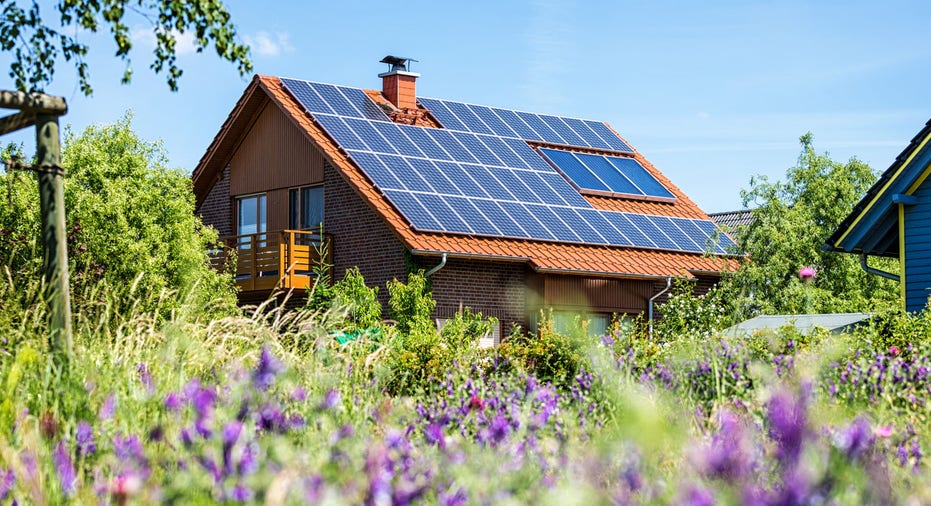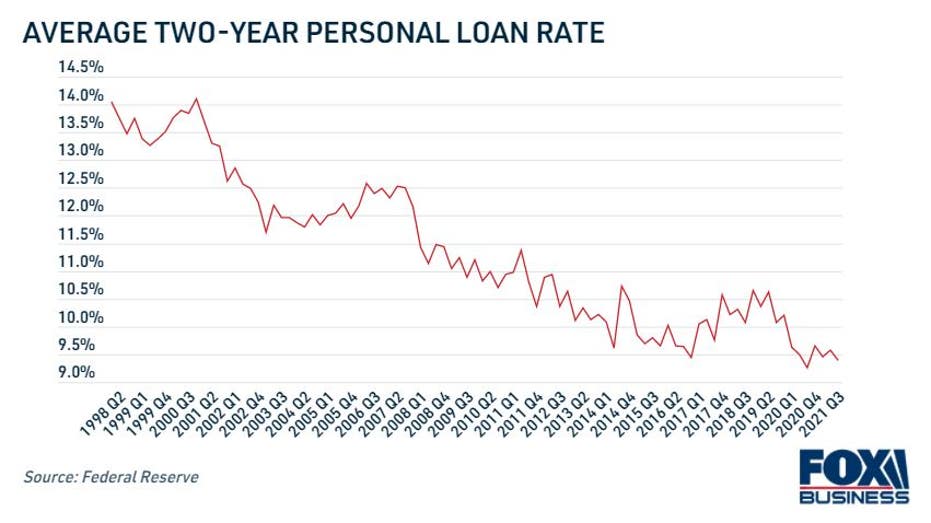Build Back Better will cut cost of installing rooftop solar panels by 30%, White House says
What to know about your solar financing options

The cost of installing a solar panel system on your home may become even cheaper under Biden's Build Back Better plan. Consider your solar loan options to see if the long-term savings are worthwhile. (iStock)
The House of Representatives passed President Joe Biden's signature spending plan, Build Back Better, which the White House has called "the largest effort to combat climate change in American history." Part of that effort is an investment in green energy like electric vehicles and residential solar panels.
The bill's current framework will cut the cost of installing rooftop solar panels by about 30% through a new and improved rebate program and increased federal tax credits. This will make solar energy more accessible for homeowners and save the average American family hundreds of dollars per year on their electric bills, the White House estimates.
Still, installing solar panels can come with significant upfront costs. Keep reading to learn more about how to pay for solar panels, including home equity financing and unsecured loans. Visit Credible to compare interest rates on a variety of financial products, including cash-out mortgage refinancing and unsecured personal loans.
BUILD BACK BETTER EXPANDS EV TAX CREDIT WITH $12.5K INCENTIVE ON AMERICAN-MADE ELECTRIC CARS
3 ways to pay for solar panel installation
Under the current federal tax incentives, the average cost to install solar panels in the United States is about $12,000, according to Consumer Affairs. Biden's Build Back Better Act would effectively reduce those upfront costs significantly in the form of increased tax credits. But keep in mind that Build Back Better still has to pass through the Senate, where it's likely to be revised, before it can be signed into law.
There are several factors that will impact the final cost of installing solar panels on your home, including your electricity needs, the type of panels you choose, where you live and the size of your home. A small solar panel unit can cost as little as $5,000, while a more advanced residential solar energy system can cost up to $40,000, Consumer Affairs estimates.
Here are a few popular solar panel financing options to choose from:
Read more about each type of home improvement loan in the sections below.
REFINANCING AN FHA LOAN? HERE'S EVERYTHING YOU NEED TO KNOW
1. Cash-out mortgage refinancing
Mortgage refinancing is when you take out a new mortgage with better terms to pay off your current home loan. Refinancing can help you lower your monthly payments, pay off your mortgage faster, or even access your home's equity.
Cash-out refinancing allows you to take out a mortgage loan that's worth more than your home's current value so you can access the difference in a lump sum of cash. Since mortgage rates are still relatively low, according to Freddie Mac, it may be possible to tap into your home's equity without raising your monthly mortgage payment.
Additionally, you may be able to deduct the interest from your cash-out refinance on your taxes. The Internal Revenue Service (IRS) lets homeowners claim tax benefits for home improvements that significantly increase the value of a home, such as clean energy improvements.
Keep in mind that mortgage refinancing comes with a few drawbacks. You'll have to pay closing costs, which are typically between 2-5% of the loan amount, according to Credible. Plus, if your new loan puts you below the 20% down payment threshold, you may be required to pay private mortgage insurance (PMI).
Visit Credible to compare mortgage refinance rates without impacting your credit score. Then, calculate your new monthly payment to decide if this option is right for you.
FANNIE MAE EXECUTIVE: TOP 3 REASONS WHY HOMEOWNERS SHOULD REFINANCE
2. Home equity loans and HELOCs
Home equity loans and home equity lines of credit (HELOCs), also known as second mortgages, are financing options that you take out in addition to your current home loan. Unlike cash-out mortgage refinancing, you'll keep your original mortgage terms and take out a new loan with its own monthly payment.
The main advantage of home equity loans and HELOCs over cash-out refinancing is that you may not be required to pay closing costs. Some home equity lenders will cover the closing costs, which is not the case with cash-out mortgage refinancing.
However, interest rates are typically higher for home equity loans and HELOCs than they are for mortgage refinancing, which can make this a pricier financing option.
You can browse current mortgage refinance rates in the table below.
PERSONAL LOAN VS. CREDIT CARD — WHEN TO USE EACH ONE
3. Personal loans
A personal loan is a type of unsecured loan that lets you borrow a lump sum of cash without putting up your home as collateral, which means you don't risk losing the roof over your head if you default on the loan. This relatively low risk makes personal loans a popular choice for homeowners who need money to finance home improvements.
Personal loans come with slightly higher interest rates compared with secured options like home equity loans and mortgage refinancing, since there's no collateral to seize if a borrower defaults on the loan. Instead, lenders determine personal loan interest rates and eligibility based on a borrower's creditworthiness. Consumers with excellent credit will qualify for the lowest possible rates.
Luckily, personal loan rates are near all-time lows, according to the Federal Reserve. This makes it a good time to take out a personal loan to pay for home improvements like solar panels.

If you decide to borrow a personal loan to finance solar panel installation, it's important to compare interest rates across multiple lenders to ensure you're getting the lowest rate possible for your situation. Visit Credible to view personal loan offers and repayment terms for free.
PERSONAL LOAN ORIGINATION FEES: ARE THEY WORTH THE COST?
Have a finance-related question, but don't know who to ask? Email The Credible Money Expert at moneyexpert@credible.com and your question might be answered by Credible in our Money Expert column.




















